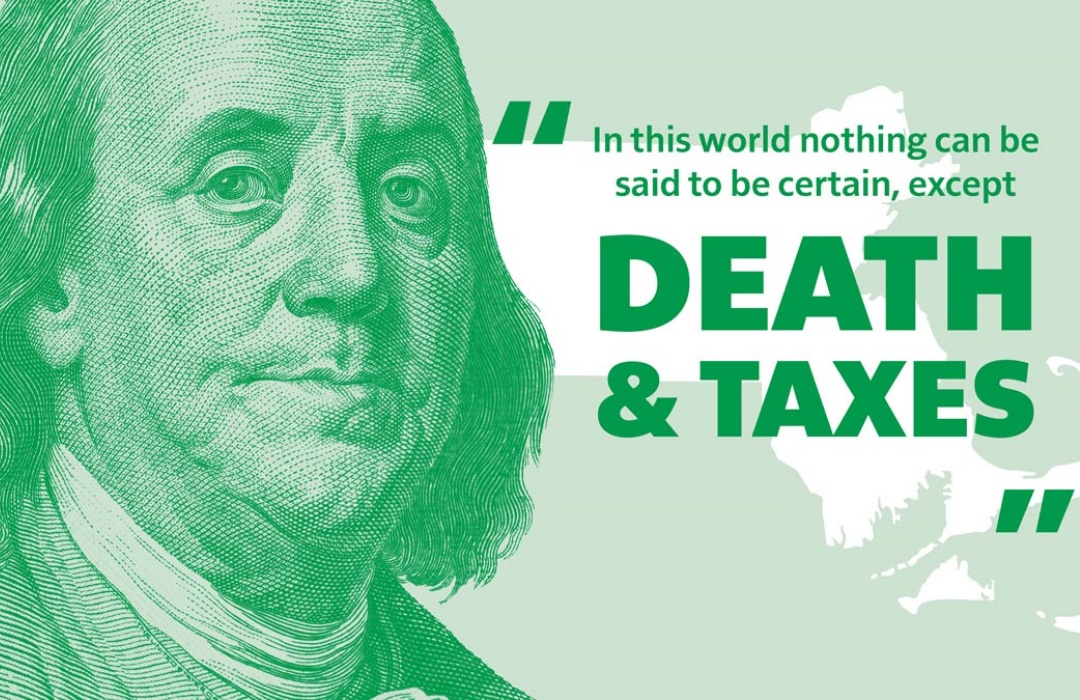Reduce taxes by giving smartly


“Should five percent appear too small, be thankful I don’t take it all, because I’m the taxman … Don’t ask me what I want it for if you don’t want to pay some more, because I’m the taxman.” —The Beatles
I’m not a big fan of paying taxes. I mean, I guess I like it when roads are paved, cops catch the bad guys, and firefighters save lives. I get it — I need to pay some taxes to benefit from what our society offers. But do we need to pay so many taxes?
Isn’t it nice when you can get away with pulling one over on the taxman? It feels especially good when you can get one up on him by doing something you were going to do anyhow.
Suppose you want to give money to your favorite charity. But why? I mean, why does it have to be cash or a check? You may yield a tax advantage in gifting highly appreciated non-cash assets that you’ve owned for more than a year. Gifting appreciated non-cash assets — such as stocks, mutual funds, real estate, or private business interests — provides a unique opportunity to leverage your charitable giving.
First, you potentially eliminate the capital gains tax you would incur if you sold the assets, then gifted the proceeds yourself. That could increase the amount available to the charity by up to 20 percent (the capital gains tax rate). Second, you may be able to claim a fair market value charitable deduction for that gift. For example, you could go out today and buy an NFT (non-fungible token) or a sculpture for $50,000, have it appraised again in a few years for $250,000, then donate it to claim a quarter-million-dollar deduction.
Other gifts that could allow you a tax break include publicly traded securities, restricted stock, equity compensation awards, real estate, privately held business interests, cryptocurrency, fine art, and collectibles.
But once you decide what you want to give, you don’t have to give it right away. That might seem obvious. What’s less obvious is that you can place those assets in an account that potentially lets you claim the deduction sooner, while possibly also providing tax-free growth. You can claim your tax deduction in the year you put the assets into the account, rebalance the investments at any time, and grant the gift when you deem appropriate.
Knowing what you can gift to receive a tax deduction is as vital as knowing when. For example, an individual might want to diversify a concentrated position or reduce the tax liability for their heirs.
Various types of accounts can provide different advantages and restrictions. Below is an excerpt from my not-yet-released book, “Don’t Run Out of Money in Retirement: How to Increase Income, Avoid Taxes, and Keep More of What’s Yours.” This passage briefly explores some of those accounts, such as Charitable Remainder Trusts, Charitable Lead Trusts, and Donor Advised Funds.
“It’s a common comment in estate planning whenever the topic of charitable giving comes up: I’d like to do more giving, but I don’t want to deprive my family of their inheritance. They see their legacy primarily as what they leave for their children and grandchildren. Meanwhile, they are giving a lot of money to the government, which spends their tax money to support whatever it decides is best. Given a choice, most people would rather decide for themselves. Here’s what they should know: They could have that choice. With effective planning, using the power of trusts and insurance, families can do more giving without taking away from the inheritance. As less money goes to taxes, more goes to loved ones as well as to cherished institutions and worthy causes.
“If you like that idea, talk about it with your family and other heirs. They don’t need to agree with your choice of charities, but they should understand your intentions and see that you aren’t out to deprive them of their inheritance. Then take a close look at your assets to determine which ones should be assigned to which purposes. It makes sense to give fully taxable assets to charity, since the charity is exempt from taxes on what it gets, and you get a deduction for what you give. Money from your tax-deferred IRA, for example, could be a good charitable choice. If instead you left that money to your kids, they would be obligated to pay all the deferred tax, and the distribution potentially would push them into the highest tax bracket.
“On the other hand, the payout from a life insurance policy could be a good resource to leave to your kids, since the money goes to them free of income taxes. They also can claim a step-up in basis on certain assets that they could receive based on its current value rather than on the amount that you originally paid. If your children, for example, inherit stocks from you, they generally would not be taxed on your gains.
“Another way to leave money to charity is through your beneficiary listings. You can split the money up by percentages—a third to each of your two children, for example, and the remaining third to your charity of choice. The IRS also allows you to give up to $100,000 annually to eligible charities if you have reached the age when you must begin withdrawing from your tax-deferred retirement plan. The amount given to charity counts toward your required minimum distribution, but you don’t pay income tax on it. That’s an option only if you don’t need the money yourself, of course. Instead, you can benefit a worthy cause, save on taxes, and reduce the extent of your estate.
“An interesting trust to consider is the CRT, or charitable remainder trust. It’s a good choice if you have assets with a lot of appreciation and would face a steep capital gains tax if you were to sell them. With a CRT, you can donate assets but keep control of them and gain an income from them, for as long as you live—and you get a tax deduction up front for your contribution. Then, upon your death, the charity gets what remains, exempt from taxes. You might also spend some of your interest income to pay the premium on a life insurance policy payable to your heirs after you and your spouse die. That way they could get a tax-free death benefit equivalent to the amount you donated to charity through the CRT. Another option is to set up a charitable lead trust, or CLT. With a CLT, the charity receives the interest from the asset for a set period, after which your heirs get the balance.
“Some families also set up a donor advised fund for their charitable giving. The family gets a tax deduction for the amount that it contributes every year as a donation to qualified charities, but the money does not go immediately to those charities. Instead, the donations remain in the fund as the family manages the money over time. Eventually it all must go to charities, but the family gains flexibility in deciding which ones will get a donation and when that will happen. Family members can get together annually, perhaps at Thanksgiving, and decide which charities, if any, they will support in the coming year. They need to file only one form for the distribution rather than separate ones, and they get a convenient record of their giving through the years.”
I’ll add a bonus for those who want to invest cash. There is the Massachusetts Community Investment Tax Credit (CITC). The CITC provides a 50 percent state tax refund. I first heard of the CITC when being vetted to sit on the Community Development Corporation of South Berkshire board (CDCSB). It works like this: you donate cash, then you receive a certificate of credit. So, if you donate $2,000, you receive a $1,000 credit. Suppose you had a $500 tax liability; that $1,000 credit eliminates your liability, and you also receive $500 from the state. That is in addition to the regular deductions you might have received from the donation. Massachusetts residency is not required. Essentially, it’s like a charitable donation tax deduction on steroids. Here is a video to explain it.
A single column isn’t enough to provide a complete exploration of what would work best for you. I painted in broad strokes here. Have a conversation with your financial advisor to complete the picture.
Allen Harris is the owner of Berkshire Money Management in Dalton, Mass., managing investments of more than $700 million. Unless specifically identified as original research or data-gathering, some or all of the data cited is attributable to third-party sources. Unless stated otherwise, any mention of specific securities or investments is for illustrative purposes only. Adviser’s clients may or may not hold the securities discussed in their portfolios. Adviser makes no representations that any of the securities discussed have been or will be profitable. Full disclosures. Direct inquiries: [email protected].
This column originally appeared in The Berkshire Edge on December 6, 2021.
Allen is the CEO and Chief Investment Officer at Berkshire Money Management and the author of Don’t Run Out of Money in Retirement: How to Increase Income, Reduce Taxes, and Keep More of What is Yours. Over the years, he has helped hundreds of families achieve their “why” in good times and bad.
As a Certified Exit Planning Advisor, Certified Value Builder, Certified Value Growth Advisor, and Certified Business Valuation Specialist, Allen guides business owners through the process of growing and selling or transferring their established companies. Allen writes about business strategy in the Berkshire Eagle and at 10001hours.com.









